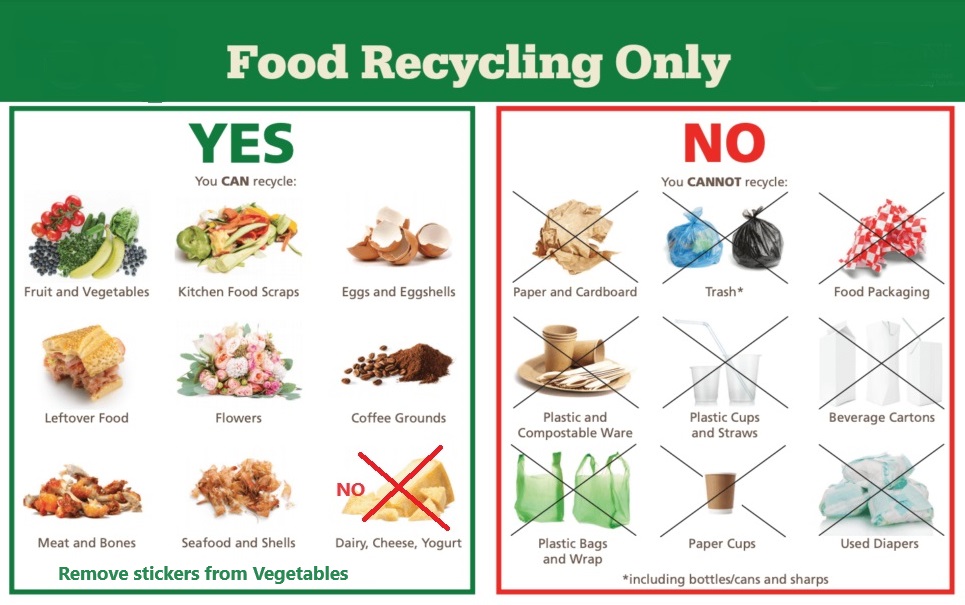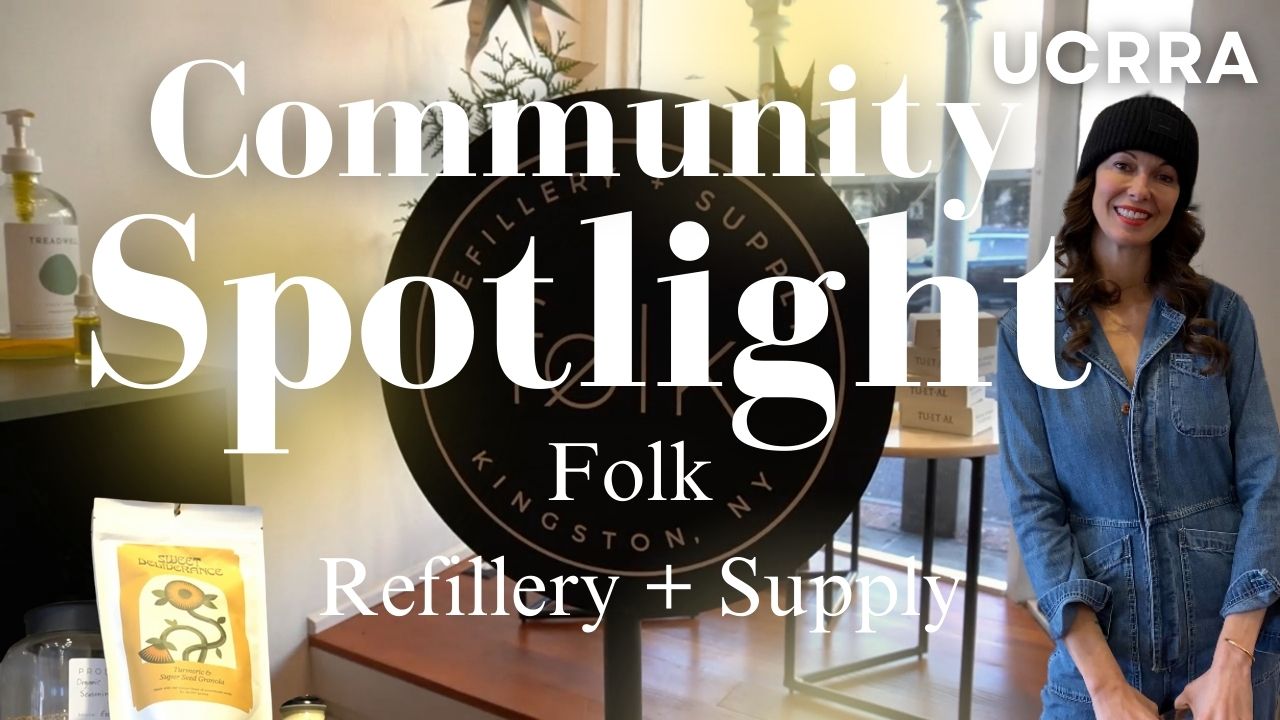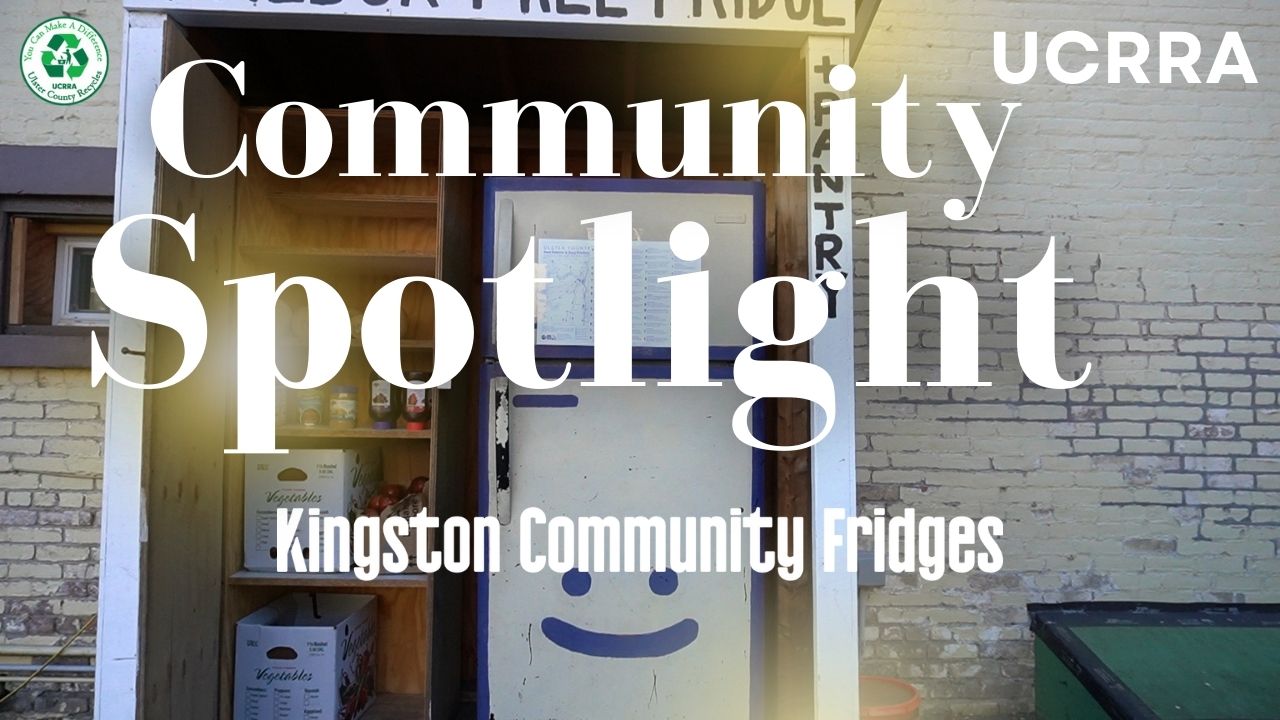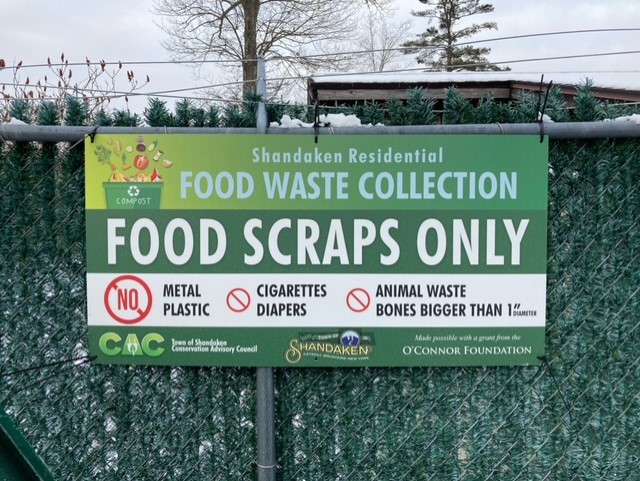
February 1st 2024
Community Spotlight Blog by Angelina Brandt, Director of Sustainability
Interviewees: Bethia Waterman, Town of Shandaken Conservation Advisory Council and James Amenta, Local Farmer/Composter
The Recycling Outreach Team’s “Community Spotlight” initiative highlights local stories about waste-sustainability. This month, Angelina sat down with Bethia Waterman, Member of the Town of Shandaken Conservation Advisory Council and James Amenta, a Local Farmer and Community Composter. A Shandaken resident for 40 years, Bethia Waterman holds a Masters Degree in Environmental Studies from BARD College. Prior to retiring in 2009, Bethia worked in the Hudson River Estuary program at the Department of Environmental Conservation in New Paltz. In this interview, Bethia discusses how the town of Shandaken introduced its first food scrap composting program, which launched on January 4th, 2024, and James offers their perspective on how composting is positively impacting the community. If you enjoy this blog, or know someone who might, please consider sharing this story!
For those who may not know, tell us about the organizations that you’re involved with?
Bethia: The Shandaken Conservation Advisory Council and Climate Smart Community Task Force was created in April 2022. Our mission is to preserve and protect the environment and help [the Town] reduce greenhouse gases.
James: We’re a pretty new, small veggie and herb farm and 2024 will be our fourth year growing food on the banks of the Esopus. Importantly though, right from the beginning we wanted this to be a project which was in service to the larger community. Offering community composting was one of a few ideas, but it’s pretty quickly become amongst our most popular.
How did you first get involved with the CAC? And what about this organization or its mission has drawn you to stay involved?
Bethia: I volunteered to work on the CAC from the very beginning. We have a team of 9 enthusiastic and committed volunteers. We have achieved bronze certification as a Climate Smart Community in a very short time – a testimony to the hard work of the team!
What do you love most about living in Shandaken?
Bethia: The best thing about living in Shandaken is that 85% of the land in town is government owned, pristine rivers and forests full of fish and wildlife with unlimited recreational opportunities. It attracts people who are independent by nature.
James: One of the main reasons we chose [to farm here in] the Catskills was because we knew the combination of soil and water quality here is essentially impossible to compete with. Our water comes right from the Esopus and the minerality in our mountain soils is unparalleled.
Tell us about the new composting program at the Town of Shandaken Transfer Station?
Bethia: In Shandaken, we have a recycling program at our transfer station, but no trash collection. People who do not wish to compost in their backyard have the opportunity to drop off their food scraps at the transfer station. [There will be a bear proof metal container like those used by national parks available]. The food scraps are collected by a local farmer who composts it at his farm in Phoenicia. The Town transfer station facility is open from 7.30 am to 12.30 am on Saturday, Monday and Thursday. A detailed list of what is and what is not accepted can be found on the Town website

How did the composting partnership between the CAC, the Town of Shandaken, and the local farmer come about?
Bethia: The local farmer began a food waste composting program at the Phoenicia Farmer’s Market before the CAC was created. We [set up an outreach table] at the transfer station and talked with local residents to see if there was an interest in having a composting program. We got very positive feedback! The farmer was enthusiastic and this became a natural extension of his program. The CAC applied to the O’Connor Foundation Grant for funds to purchase a 3-bay bearproof trash locker with 20 gallon airtight containers, an educational sign and an additional Jora-style composter. Between the grant for the equipment, and the volunteer composting by the farmer, the program operates at no cost to the Town of Shandaken.
In your own words, how does the town composting program positively impact your community?
James: For me, the most magical part of this program is that it often changes the way people think about “stuff”. Our society encourages you not to think about where the things you consume come from or where they go. I find that often, when someone starts to participate in composting, they really quickly start to think more about all the stuff they’re tossing out and where it’s ending up. By just looking at what you’re tossing out, for 30 more seconds than you used to, it begins to make you a lot more aware of what you’re wasting. The amount of people who tell me some version of “I never realized how much ___ I was throwing away”, it’s wild. And it’s awesome. Mostly because it’s almost always followed up by them telling me about how it’s changed their buying habits. I really love that.
Bethia: The composting program is a small step but a mighty one. It empowers people to take action. It combats hopelessness in the face of climate change. Did you know that food waste that ends up in landfills produces methane, a greenhouse gas that is 80x more warming than Carbon Dioxide? Simply reducing the food waste in your garbage deeply helps the climate and pollution crisis. And what you can do with your waste food is simple: Turn it into soil by composting!
What is one thing you wish more people knew about the impact of their waste?
James: When it comes to waste, I wish there was more public education about where and how we deal with it. Doing this composting program, people talk to me a lot about our composting system but then also the regular waste system. Very few people realize that Ulster County trucks every ounce of garbage over 200 miles north-west of here, to a dump that piles trash almost as tall as the statue of liberty. Sometimes people don’t even believe me when I tell them. If you’re offering me one wish around knowledge, I just wish more people knew how unbelievable the system is, because I think if they knew, the motivation to change it would be much higher!
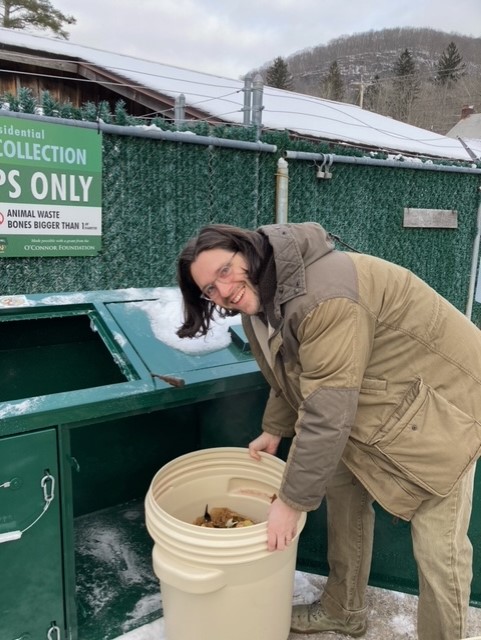
Other than the composting program, what else is new around the Shandaken area or tell us more about the work the CAC is doing to raise environmental awareness and engagement?
Bethia: There is a lot happening in Shandaken! There’s a major renovation of our parks, a smart-housing committee, and a new rail trail being implanted by Ulster County just to name a few. The CAC is planning a series of public events and performances to celebrate Earth Day on April 20, 2024. Check the Town web site for more info as our plans develop!
For other local Towns considering starting a similar program, what is one thing you wish they knew about the process or what it takes to get a program up and running?
Bethia: Patience. Most of all it takes patience. We have only just begun!
James: Grow slowly. Embrace Change and flexibility. Value people’s time highly. Never forget that enormous changes start really small.
